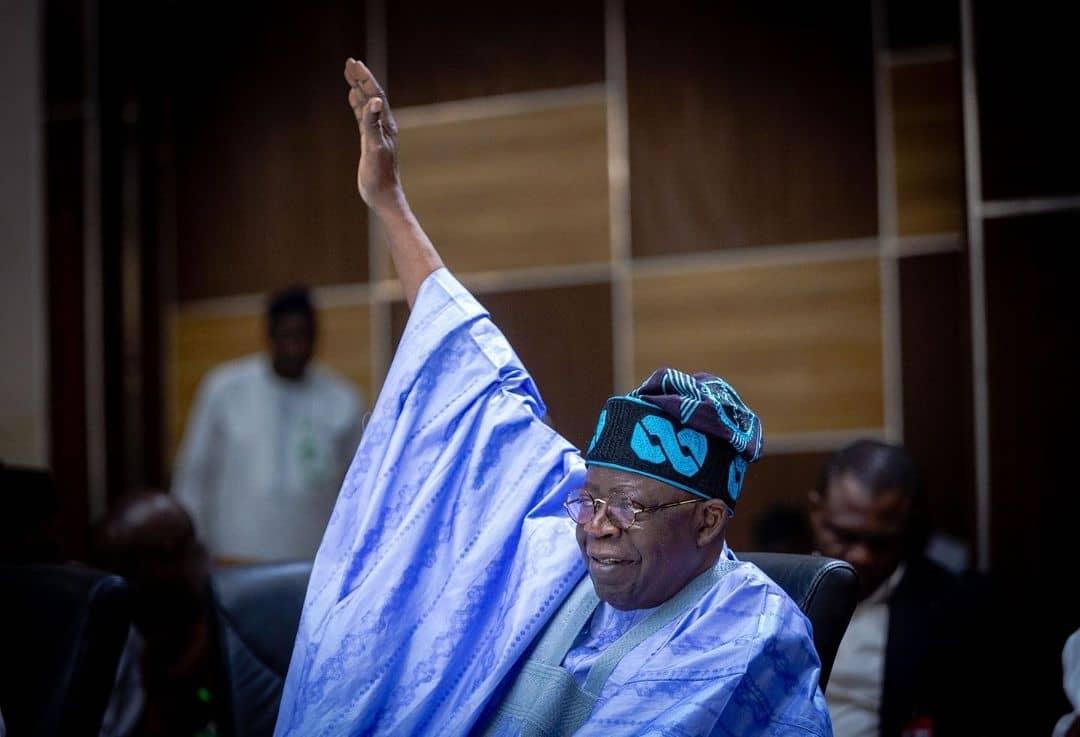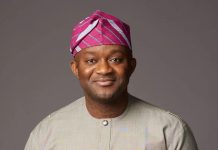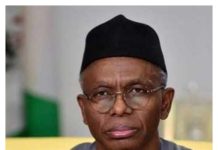Abba Hamisu Sani
Africa-Press – Nigeria. As the Independent National electoral commission INEC declared the former Lagos State Governor Ahmed Bola Tinubu as the Nigerian President elect on the early hours of Tuesday 1st of March 2023 Nigeria has a new leader that will face numerous challenges ranging from security and economy to mention few.
The contest which brought Tinubu to the presidency as the six President of Nigeria can be described as a short one considering how keen were the Campaigns and the strange voting pattern exhibited by the electorates in states like Lagos the political base of the President elect.
Tinubu had never missed Lagos votes since 1999 but this time around the votes were not in his favor as Labour party candidate Peter Obi swept the largest commercial center of the country.
Another unexpected feature of the election is how the incumbent President Buhari lost his home state Katsina to the main opposition candidate Atiku Abubakar .
What happened to the National chairman of the ruling Party Senator Abdullahi Adamu is also unimaginable as Nasarawa state was considered as Buhari’s political domain since during his former Party Congress for progressives change CPC which was highly accepted in the state prior to the formation of APC as the only state won by CPC during 2011 election.
In Kano State which is second state with high registered voters seems to be no go area for Tinubu and APC as the Presidential Candidate of New Nigeria People’s Party Senator Rabi’u Kwankwaso has the home advantage and acceptance as he lead above all the contenders during the Presidential election unlike Tinubu in Lagos State.
Daily trust is one the prominent newspapers in Nigeria. The paper captured some of the factors that determine Tinubu’s success in the 25th February Presidential election in one it’s recent publication.
The Independent National Electoral Commission (INEC) declared Asiwaju Bola Tinubu of the All Progressives Congress (APC) as the winner of the Presidential election.
INEC Chairman, Prof Mahmood Yakubu, who declared the results, said Tinubu polled 8,794,726 votes to defeat his closest rival, Atiku Abubakar of the Peoples Democratic Party (PDP), who scored 6,984,520 votes. While Peter Obi of the Labour Party (LP) got 6,101,533 votes, Rabiu Kwankwaso of the New Nigerian People’s Party (NNPP) trailed with 1,496,687 votes.
Now that the election is won and lost, this write up is taking a look at some of the factors that played critical parts in Tinubu’s path to victory .
Ethnicity as a Factor
Going to the polls, ethnicity was a major yardstick that brightened the chances of the former Lagos State governor Tinubu riding on his famous ‘emilokan’ . It is my turn to rally support from Yoruba, majority of whom believe that a Tinubu presidency is a collective ethnic cause.
As such, Tinubu got overwhelming votes from his region in the South West dominated by Yoruba. Although he lost in Osun and his home state Lagos, he was able to secure a large number of votes in the two states, resulting in a narrow defeat to Atiku and Obi respectively.
The Centre for Democracy and Development alluded to this factor in its post election report released on Tuesday 29th February.
“Early voting patterns suggest that ethnic identity may have been a key determinant in voters’ choices in this election. However, the result from Lagos, where Obi was able edge Tinubu offers some optimism for a generational change independent of the ethnic cleavages that have historically dominated Nigerian politics,” CDD said.
Muslim Muslim ticket as another reason for Tinubu’s Victory
A storm of controversy trailed Tinubu’s choice of Senator Kashim Shettima as his running mate as many, especially those from other religious groups, kicked against the Muslim Muslim ticket in a secular society such as Nigeria.
But Tinubu stuck to his guns, justifying his choice in what he and his party described as a strategy
to make inroads into the core North and gain acceptance from the Muslim voting bloc in the region. The strategy, to a large extent, worked in Tinubu’s favor as he got millions of votes in the North West, North East and North Central.
Obi and Kwankwaso’s defection from PDP strengthen APC chances
Going by the final results INEC declared, some would argue that Tinubu and the ruling APC would have been humbled to an ignominious defeat if Obi and Kwankwaso had not defected from PDP to LP and NNPP respectively.
In the run up to the presidential primaries, a clash of interests loomed large in PDP. Obi, Kwankwaso and Atiku could not come to terms as each of them wanted to emerge the standard bearer of the party. This eventually snowballed into defections and the resultant depletion of votes that should have gone to PDP.
The Governor of Anambra State (where Obi hails from), Prof Charles Soludo, captured this scenario in a letter he wrote last year.
“Peter Obi is taking votes away from PDP. Indeed, if I were Tinubu, I would even give Peter Obi money as someone heading a department of his campaign because Obi is making Tinubu’s pathway to victory easier by indirectly pulling down PDP” Soludo said.
PDP G5 Governors factor
Many political analysts have argued that the crisis between the PDP leadership and five governors from the party led by Nyesom Wike of Rivers State constituted a major distraction for the party and its candidate.
The governors ; Wike, Samuel Ortom of Benue State, Seyi Makinde of Oyo State, Ifeanyi Ugwuanyi of Enugu State and Okezie Ipeazu of Abia State were at daggers drawn with the party, demanding the resignation of its national chairman, Dr Iyorchia Ayu. They anchored their grievance on perceived injustice in the party, claiming that Atiku and Ayu are from the North.
Although Atiku and PDP later put the crisis behind them, its effect was somewhat telling in the results of the poll as Tinubu won in Rivers and Oyo states. Obi also secured huge votes in Benue after Ortom openly declared support for the LP presidential candidate. Ultimately, Atiku did not win in any of the states governed by the G5.
With the above mentioned factors APC’s victory is now seen by many Nigerians as another critical time for the country that suffered various economic and security challenges in the hands of the outgoing President Buhari whose health status is one of reasons that is perceived to be his main challenge.
The hope is for the upcoming government under Bola Tinubu to have a strong cabinet that can handle any eventuality.
For More News And Analysis About Nigeria Follow Africa-Press







